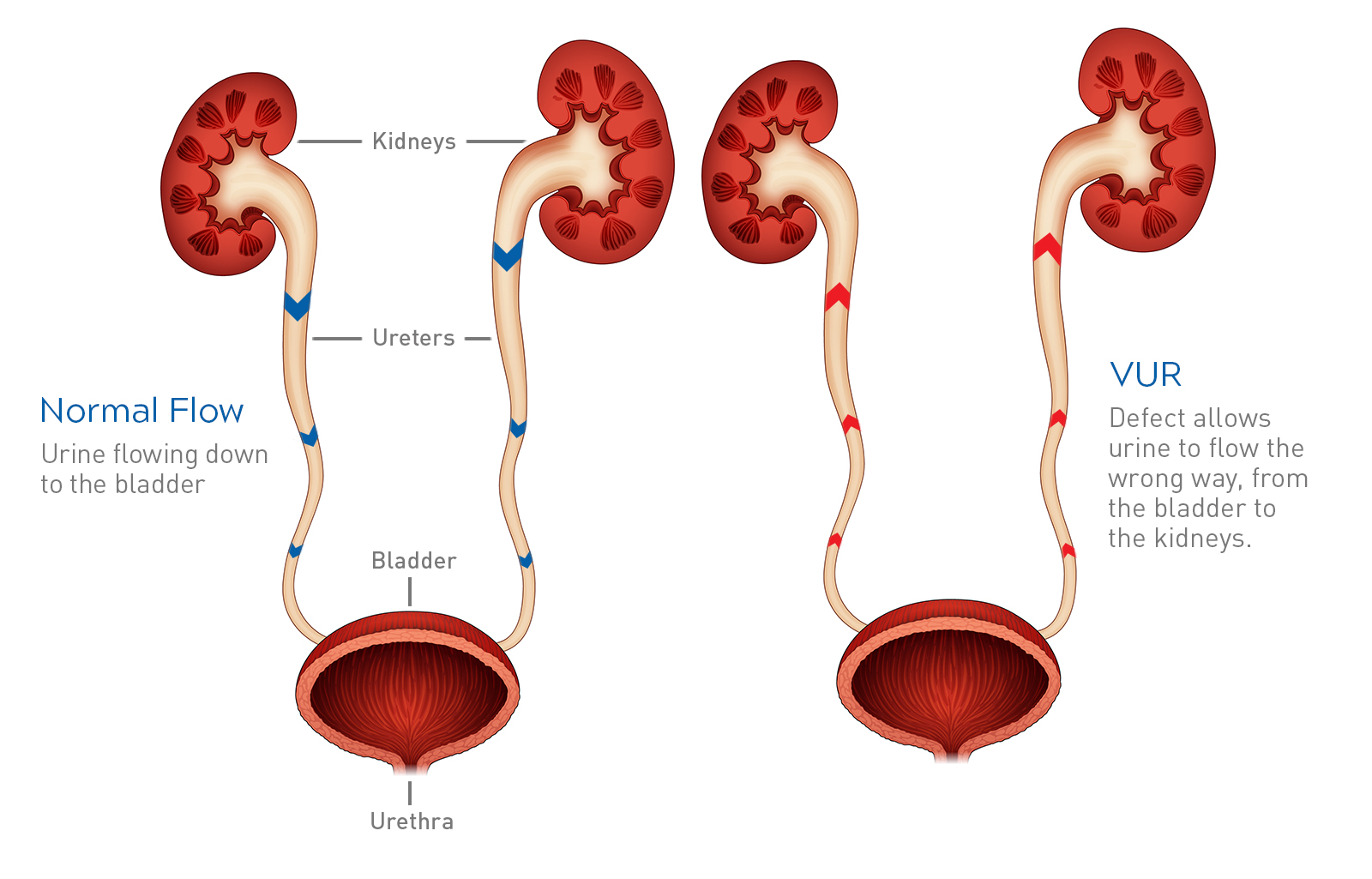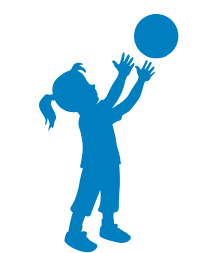What is VUR (vesicoureteral or kidney reflux)?
Kidney reflux, also known as vesicoureteral reflux, is actually the most common congenital urinary defect in children
Normally in the urinary system, the kidneys produce urine which flows down to the bladder where it’s stored until the child urinates.
Kidney reflux, or vesicoureteral reflux (ves-ih-koe-yoo-REE-tur-ul re-flux), commonly known as VUR, is a condition in which urine from the bladder backs up into the ureters. The ureters are the tubes that carry the urine from the kidneys down to the bladder. The ureters have a one-way valve system that normally stops urine from going from the bladder back up the ureters in the wrong direction. Sometimes when a child has VUR, urine can flow all the way back up into the kidney, and the valve system doesn’t work.
This backed-up urine can carry bacteria which can cause urinary tract infections (UTIs), kidney infections (pyelonephritis), and potentially long-term kidney damage (hydronephrosis).
Your doctor will diagnose your child based on an evaluation that may include a test called a voiding cystourethrogram, or MCUG. A MCUG takes an x-ray image of the bladder and ureters while the child is urinating (also called micturition) to show anything unusual in the bladder and ureters.
Kidney reflux can be very mild, requiring little treatment, or it can be severe.
The VUR grading scale ranges from grade 1 (mild) to grade 5 (severe). The higher the grade of VUR, the greater the chance that kidney damage will result—and the less likely your child is to outgrow it.1
When your child is diagnosed with VUR, your doctor will let you know what grade VUR is present. If your doctor doesn’t inform you of the grade, ask. The VUR grade can be a factor in determining your child’s treatment.
Once your child is diagnosed, you may want to ask your doctor to refer your child to a paediatric urologist, a doctor who specialises in urinary conditions in children. A paediatric urologist can help you determine what treatment is best suited for your child based on his or her grade of VUR, and other conditions your child may have such as holding their urine or constipation.















